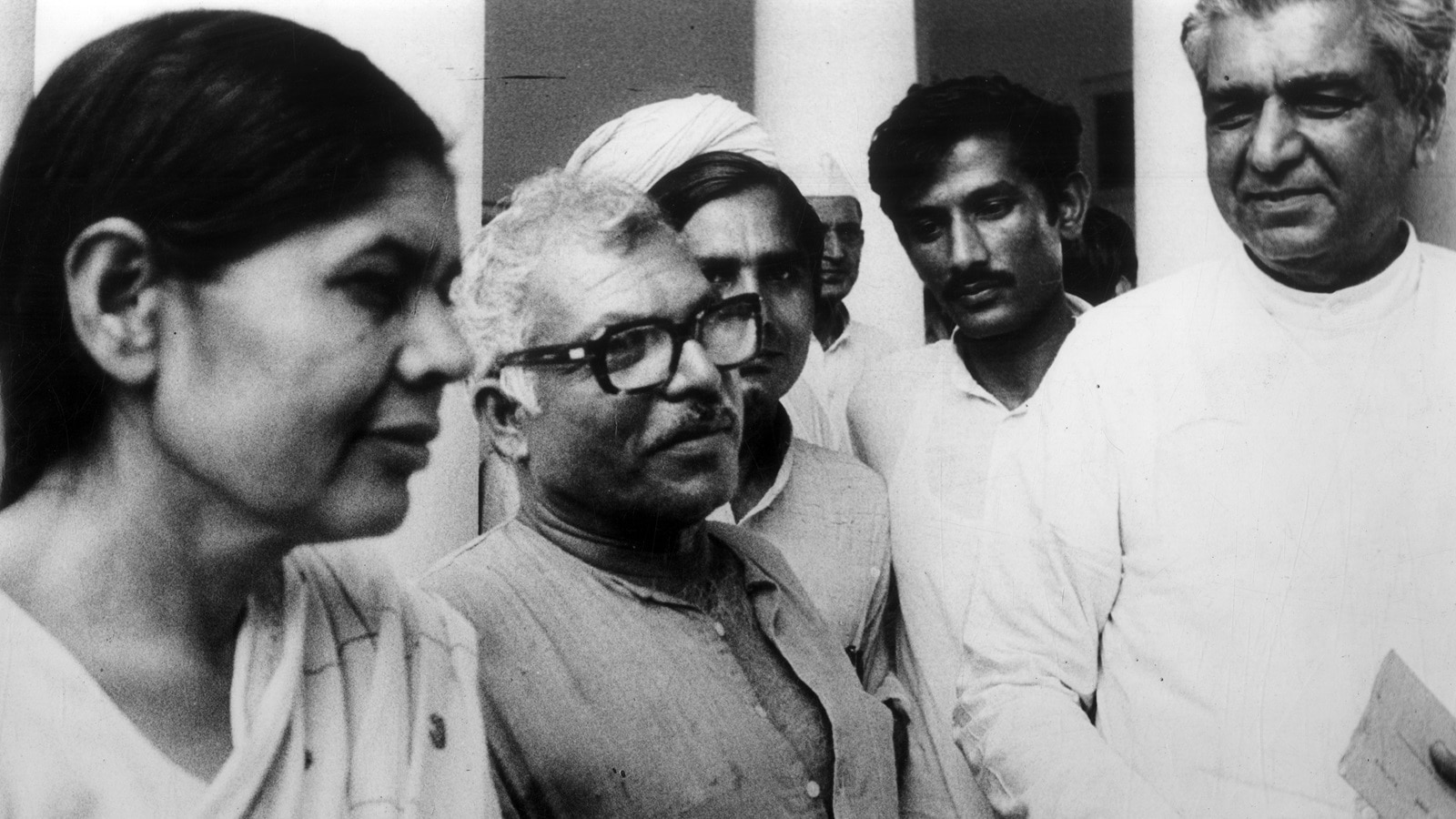Stay updated with the latest - Click here to follow us on Instagram
Former Bihar CM Karpoori Thakur to be conferred Bharat Ratna posthumously
Karpoori Thakur had made his debut as a legislator when he won the 1952 elections and remained one till his last Assembly election in 1985.
 Karpoori Thakur (second from left) at BLD meeting at Charan Singh's residence in Delhi. (Express archive photo by RL Chopra)
Karpoori Thakur (second from left) at BLD meeting at Charan Singh's residence in Delhi. (Express archive photo by RL Chopra)President Droupadi Murmu has conferred the Bharat Ratna posthumously to two-time Bihar chief minister and socialist icon Karpoori Thakur, the Rashtrapati Bhavan announced on Tuesday.
Often remembered as the “voice of the oppressed and the downtrodden”, Thakur served as the chief minister of Bihar from December 1970 to June 1971 and from December 1977 to April 1979. Also called ‘jannayak’, he is widely considered as the pioneer of OBC and EBC reservations in the country.
As the CM in 1978, Thakur implemented a layered reservation regime, despite resistance from the Bharatiya Jan Sangh, a major constituent of the then Janata Party government. The quota system, an unparalleled one at that time, provided a 26% reservation model in which OBCs got 12%, EBCs from among OBCs got 8%, women got 3%, and economically backward classes (EBWs) from among the upper castes got 3%.
I am delighted that the Government of India has decided to confer the Bharat Ratna on the beacon of social justice, the great Jan Nayak Karpoori Thakur Ji and that too at a time when we are marking his birth centenary. This prestigious recognition is a testament to his enduring… pic.twitter.com/9fSJrZJPSP
— Narendra Modi (@narendramodi) January 23, 2024
Thakur belonged to the Nai (barber) community that is listed as an Extremely Backward Class (EBC) among the Other Backward Classes (OBCs) in the state and was from Pitaunjhia (now known as Karpoori Gram), a Rajput-dominated village in the Samstipur district. He made his debut as a legislator when he won the 1952 elections and remained one till his last Assembly election in 1985. He, however, faced an electoral loss when he contested from Samastipur in the 1984 Lok Sabha polls, when several other non-Congress stalwarts had also lost their elections due to the sympathy wave in the wake of Indira Gandhi’s assassination.
After 1980, Karpoori was dubbed an EBC leader, a tag that he was not able to shed till the end of his life. This was a bit of an irony since he started off as the leader of the masses by rallying together the support of the upper castes, OBCs and Dalits. However, from this point until his death in 1988, he had to look for political relevance in the state.
Towards the later part of his career, Thakur’s reservation policy drew a lot of criticism from the public. In 1988, 42 upper caste people were killed by Naxalites in the Dalelchak Bhagoda village and Thakur, who went to visit the village, was nearly driven away by an angry mob from the spot. A Patna-based photographer had to rescue him.
The socialist icon is known to have been firmly against dynastic politics. His son Ramnath Thakur, now a second-term JD (U) Rajya Sabha MP, only joined politics after his father’s death.
On July 12, 2022, speaking at an event to mark the centenary of the Bihar Assembly building, Rashtriya Janata Dal (RJD) leader Tejashwi Prasad Yadav had demanded a Bharat Ratna for Karpoori Thakur, a two-time Chief Minister of the state and a towering socialist icon who is often invoked by the state’s politicians.
This year, the JD(U) pushed for the commemoration of Thakur’s birth anniversary on a grand scale in Bihar, from Patna to his village Pitaunjhiya to Samastipur, with Bihar CM Nitish Kumar in attendance at some of the events.
Some of the schemes rolled out by Kumar bear the mark of Thakur’s socialist politics – whether it is the waiving of school fees for girls until their post graduation or providing a 50 per cent reservation to women in panchayats.







